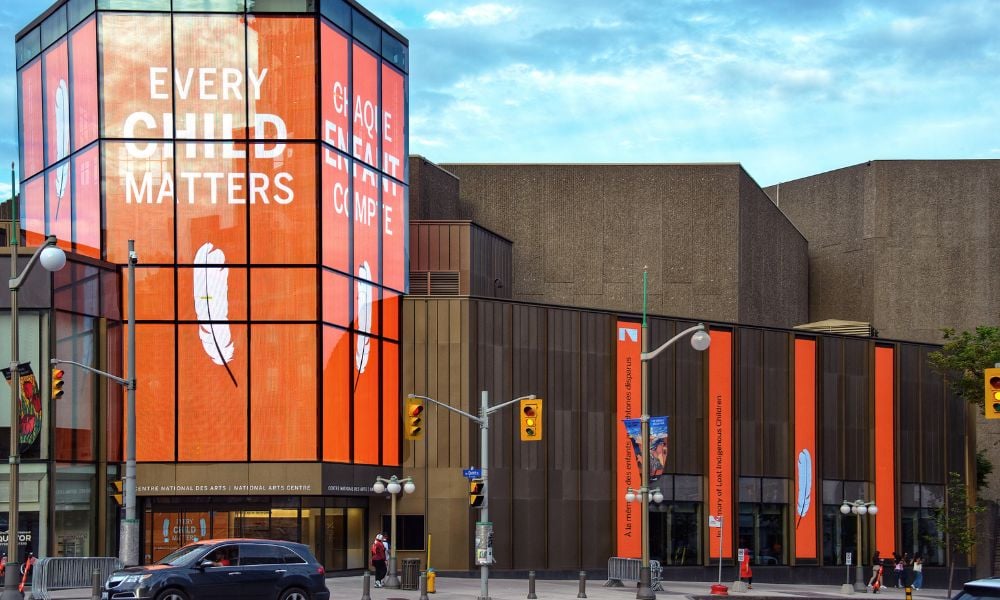
Many provinces, territories don’t consider Sept. 30 statutory holiday

Each year, Canada marks Sept. 30 as the National Day for Truth and Reconciliation.
In 2021, the federal government passed legislation and established the federal statutory holiday which applies only to federal employers and employees who are governed by the Canada Labour Code (for example, banks, federal government, broadcasting and air transport).
In other words, federal employees will receive a paid day off from work to honour this day or receive holiday pay if they work on this day.
But which provinces and territories are also marking the day as a provincial holiday?
Alberta: While Alberta marks the National Day for Truth and Reconciliation, it is only an optional statutory holiday or general holiday. It’s up to employers if they want to give their workers time off for that day.
If a general holiday falls on a regular workday, an employee may receive the day off work and their full salary for the day.
If a general holiday does not fall on a regular workday and the employee does not work on the holiday, no general holiday pay is owed. Employees are also not entitled to a day off in lieu with pay, according to the government.
British Columbia: On March 9, 2023, the Province of British Columbia passed legislation to make September 30 a statutory holiday by the power of The National Day for Truth and Reconciliation Act.
“Having a provincial statutory holiday means eligible B.C. workers are able to observe Sept. 30 with a paid day off or receive payment at premium rates if required to work,” says the government.
Manitoba: In December 2023, Manitoba established Sept. 30 as a provincial statutory holiday or general holiday.
All employees receive general holiday pay unless:
New Brunswick: In 2022, New Brunswick declared Sept. 30 a provincial holiday in recognition of the National Day for Truth and Reconciliation but it is not a paid public holiday.
The day will be treated as any other holiday for management and non-union employees in Parts I, II and III of the provincial public service, according to the government. This includes central government departments and agencies, as well as the anglophone and francophone school systems. Collective agreement terms and conditions for holidays will apply to unionized employees in Parts I, II and III. This holiday will be optional for private sector businesses.
Newfoundland and Labrador: Sept. 30 is a not a paid public holiday in Newfoundland and Labrador.
Businesses and other organizations in the province are encouraged to commemorate the Day for Truth and Reconciliation, according to the government.
“As part of the ongoing process to identify a meaningful way to observe this day going forward, consultations will continue with Indigenous governments and organizations, and the business and labour sector on the prospect of declaring September 30 a public day of reflection under the Labour Standards Act.”
Northwest Territories: The Northwest Territories declared the day a statutory holiday in 2022.
Eligible employees that do not work on the holiday get an average day’s pay. Eligible employees that work on the holiday get another day off with pay or an average day’s pay plus overtime for the hours worked on the holiday, according to the government.
Nova Scotia: Nova Scotia does not consider Sept. 30 as a general paid holiday.
While provincial government offices, public schools and regulated childcare will be closed on Truth and Reconciliation Day, businesses are not required to close and have the choice to remain open, according to the government.
An employer may agree to provide employees with Truth and Reconciliation Day as a paid holiday and the Labour Standards Division could enforce such an agreement.
Truth and Reconciliation Day is not a closing day for retail businesses.
Nunavut: In 2022, Nunavut amended the Labour Standards Act (LSA), Legislation Act and Public Service Act to add the National Day for Truth and Reconciliation, observed on September 30, as a statutory holiday or public service holiday.
Ontario: In Ontario, Sept. 30 is not considered a provincial statutory holiday in Ontario, though employers may choose to recognize the day.
Prince Edward Island: PEI considers the National Day for Truth and Reconciliation as a paid holiday in the province.
Employers must pay a regular day's pay for that holiday. If the employee's hours of work change from day to day, or if wages change from pay to pay, the employer could average hours or wages over 30 previous days to calculate what to pay the employee for the holiday (total number of hours the employee worked in the 30 days previous to the holiday divided by the number of days worked in the same period), according to the government.
Quebec: Sept. 30 is not a statutory holiday in Quebec, noted the Commission des normes, de l'équité, de la santé et de la sécurité du travail (CNESST).
Saskatchewan: In Saskatchewan, the National Day for Truth and Reconciliation on Sept. 30 is not a public holiday under The Saskatchewan Employment Act.
“However it may be observed in provincial workplaces, such as by an employer's policy or a collective bargaining agreement that includes the observance of federal statutory holidays,” noted the provincial government.
Yukon: Sept. 30, the National Day for Truth and Reconciliation, is not considered a statutory holiday in Yukon so employees regulated by Yukon’s Employment Standards Act are not entitled to this statutory day or pay in lieu.